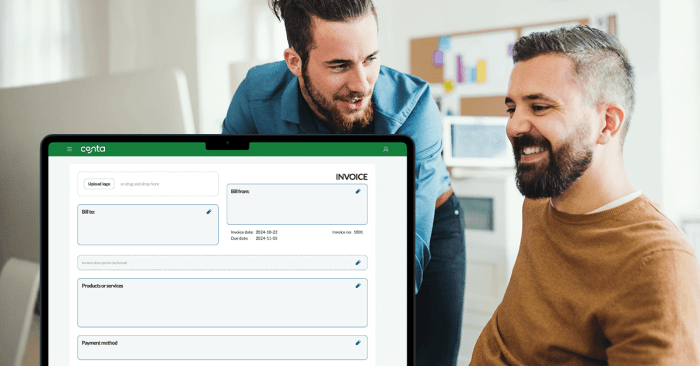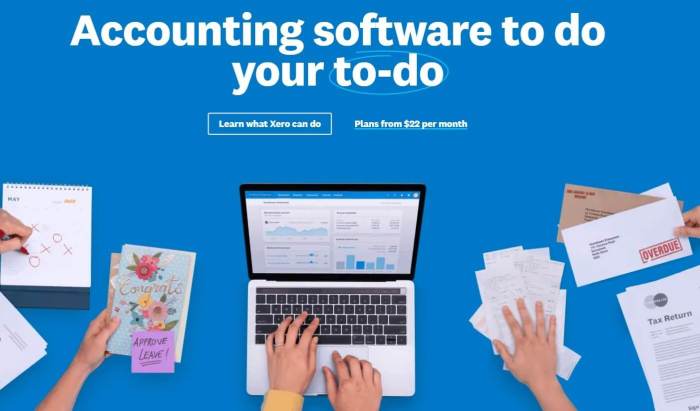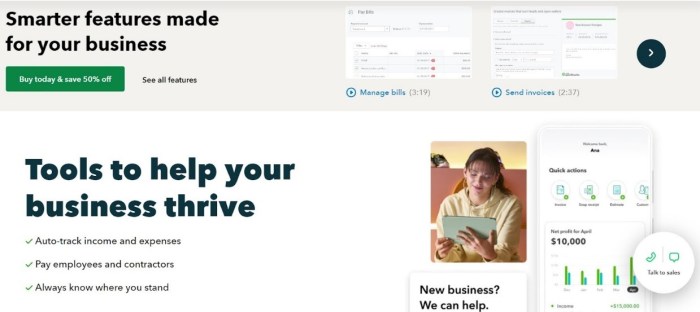Invoices software small business – Running a small business involves juggling numerous tasks, and efficient invoicing is paramount. Manual invoicing is time-consuming, prone to errors, and can hinder cash flow. Investing in the right invoicing software can significantly streamline your operations, improve accuracy, and ultimately boost your bottom line. This comprehensive guide explores the benefits, features, and considerations for choosing the ideal invoicing software for your small business needs.
Understanding the Importance of Invoicing Software for Small Businesses
In today’s competitive landscape, efficient financial management is crucial for small business success. Invoicing software offers a range of benefits that extend beyond simply creating and sending invoices. It automates many tedious processes, freeing up your time to focus on core business activities like marketing, product development, and customer service. Let’s delve into some key advantages:
Key Benefits of Using Invoicing Software:
- Time Savings: Automate invoice creation, sending, and tracking, reducing manual workload.
- Improved Accuracy: Minimize errors associated with manual data entry, ensuring accurate billing.
- Faster Payments: Offer multiple payment options (online payments, credit cards) to accelerate cash flow.
- Enhanced Organization: Centralize all invoices, payments, and client information in one secure location.
- Better Cash Flow Management: Track outstanding invoices, overdue payments, and generate insightful reports.
- Professional Image: Present a professional image with branded invoices and automated email communications.
- Scalability: Easily adapt to growing business needs without significant changes to your processes.
Choosing the Right Invoicing Software: Features to Consider
The market offers a wide variety of invoicing software solutions, catering to different business sizes and needs. Selecting the right software requires careful consideration of several key features:
Essential Features of Effective Invoicing Software:
- Invoice Creation and Customization: Ability to create professional, customizable invoices with your logo and branding.
- Payment Processing Integration: Seamless integration with various payment gateways (PayPal, Stripe, Square) for online payments.
- Client Management: Efficiently manage client information, including contact details, payment history, and project details.
- Expense Tracking: Integrate expense tracking to simplify reconciliation and improve financial reporting.
- Reporting and Analytics: Generate insightful reports on sales, outstanding invoices, and cash flow to inform business decisions.
- Automated Reminders and Follow-ups: Send automated reminders for overdue payments to improve collections.
- Inventory Management (for applicable businesses): Track inventory levels and costs to manage stock efficiently.
- Time Tracking (for service-based businesses): Track time spent on projects to accurately bill clients.
- Mobile Accessibility: Access and manage invoices from anywhere, anytime, using a mobile app.
- Integration with other business tools: Seamless integration with accounting software (Xero, QuickBooks), CRM systems, and other platforms.
- Security and Data Protection: Robust security measures to protect sensitive financial data.
Types of Invoicing Software for Small Businesses
Invoicing software comes in various forms, each with its own strengths and weaknesses. Understanding these differences is crucial in making an informed decision.
Different Software Options:, Invoices software small business
- Cloud-based Software: Accessed via the internet, offering accessibility from anywhere with an internet connection. Examples include Zoho Invoice, FreshBooks, and Xero.
- Desktop Software: Installed directly on your computer, requiring no internet connection to operate. Often offers more offline features but lacks accessibility from multiple devices.
- Spreadsheet-based Invoicing: Utilizing spreadsheets (like Excel or Google Sheets) for invoice creation. Suitable for very small businesses with minimal invoicing needs, but lacks automation and scalability.
Top Invoicing Software Options for Small Businesses
The market is flooded with options, so we’ve highlighted some popular choices:
- FreshBooks: Popular for its user-friendly interface and comprehensive features, especially suited for freelancers and small businesses.
- Zoho Invoice: A robust and affordable option offering a wide range of features, including inventory management and expense tracking.
- Xero: A powerful accounting software with integrated invoicing capabilities, ideal for businesses requiring comprehensive financial management tools.
- QuickBooks Online: Another leading accounting platform with robust invoicing features, catering to various business sizes.
- Invoice2go: A mobile-first solution, perfect for businesses needing on-the-go invoicing capabilities.
Frequently Asked Questions (FAQ)
- Q: Is invoicing software essential for small businesses? A: While not strictly mandatory, invoicing software significantly improves efficiency and professionalism, making it highly recommended for most small businesses.
- Q: How much does invoicing software cost? A: Prices vary widely depending on features and subscription plans, ranging from free (with limited features) to several hundred dollars per year.
- Q: Can I integrate invoicing software with my existing accounting software? A: Many invoicing solutions offer seamless integration with popular accounting software like Xero and QuickBooks.
- Q: Is my data safe with cloud-based invoicing software? A: Reputable cloud-based providers employ robust security measures to protect your data. Look for providers with strong security certifications and data encryption.
- Q: How do I choose the right invoicing software for my business? A: Consider your business size, invoicing volume, required features (payment processing, expense tracking, etc.), and budget when making your selection.
Choosing the Best Invoicing Software: A Step-by-Step Guide: Invoices Software Small Business
1. Assess your needs
Identify your specific invoicing requirements and desired features.
2. Research different software options
Explore various platforms, comparing features, pricing, and user reviews.
3. Try free trials or demos
Many providers offer free trials or demos, allowing you to test the software before committing.
4. Consider integration with existing tools
Ensure compatibility with your accounting software and other business applications.

Source: conta.com
5. Read user reviews
Check online reviews and testimonials to gain insights from other users’ experiences.
6. Make your decision
Choose the software that best aligns with your needs, budget, and long-term goals.
7. Implement and train your team

Source: smallbusinesshq.co
Proper implementation and staff training are crucial for maximizing the software’s benefits.
Conclusion
Investing in the right invoicing software is a strategic move for any small business seeking to enhance efficiency, accuracy, and profitability. By carefully considering the features, pricing, and integration capabilities of different options, you can select a solution that streamlines your financial operations and empowers your business to thrive.
Call to Action
Ready to simplify your invoicing and boost your business efficiency? Explore the options mentioned above and choose the invoicing software that best fits your needs. Start your free trial today and experience the difference!
Clarifying Questions
What are the key features to look for in small business invoice software?

Source: smallbusinesshq.co
Key features include easy invoice creation, customizable templates, client management, payment processing integration, expense tracking, and reporting capabilities.
Is cloud-based invoice software better than desktop software?
Cloud-based software offers accessibility from anywhere, automatic backups, and often better collaboration features. Desktop software might be preferred for those concerned about internet connectivity or data security protocols.
How much does invoice software typically cost?
Pricing varies greatly depending on features and the number of users. Options range from free plans with limited features to subscription-based services with more advanced functionalities, often costing between $10 and $100+ per month.
